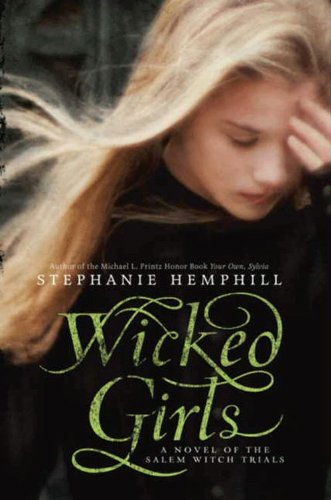Wicked Girls: A Novel of the Salem Witch Trials
Mercy Lewis is an orphan of the French and Indian War, beautiful but doomed to servitude in the Putnams’ Puritan household. Margaret Walcott is a cousin of the Putnams, desperate with love for Isaac Farrar and fearful that Mercy’s beauty will tempt him away. Ann Putnam Jr. is the privileged daughter of the household, anxious to win approval and importance among her older peers. When two younger girls in Salem Village are seized with fits and begin to denounce members of the community as witches, Ann, Margaret, and Mercy see the growing witch hunt as their chance to gain status in a male community that has always disregarded them. But as jealousy and pettiness divide the group, the so-called Purge of Salem spirals toward disaster. Have the girls begun something more horrible than they imagined? And if the accusers fail to stay unified, will they face ostracism even worse than before?
Stephanie Hemphill uses verse to construct a beautiful – if grim – portrait of the Salem Witch Trials, and to examine the timeless dynamic of teenage girls jostling for social place. Hemphill’s spare poetry captures the austerity of Puritan Massachusetts, and the hopelessness of being a young girl hemmed in by community censure and strict religious limitations. The Salem dialect fits seamlessly into each poem, and Hemphill’s characters come across as complex and believable people. Ann, Margaret, and Mercy are each capable of great cruelty, but also of great kindness. In the end, Hemphill portrays them not as petty teenagers but as victims of their time, with little way out once they have started, and little alternative but to grasp at every chance they are given.










